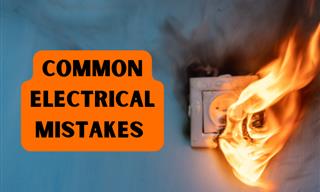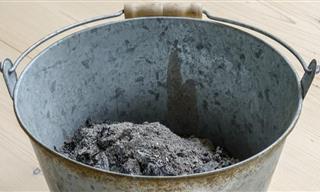

It is important to fix HVAC system problems if we are to attain the highest efficiency from the heating, ventilation, and air conditioning systems in your house throughout the year. However, householders might endeavor to mend simple troubles by themselves, but professional HVAC experts are the ones who can address the repairs precisely and efficiently, thanks to their skills, tools, and mechanical way.
To regulate the temperature within buildings, the complex networks of components that comprise HVAC systems work together. Time is saved, repair expenses are decreased, and small problems are kept from becoming bigger ones with an accurate diagnosis. Misdiagnosed issues may result in greater utility costs, wasteful energy use, or even total system failure.
Routine HVAC maintenance and a detailed HVAC maintenance checklist help prevent many common issues, but when problems arise, professional diagnosis is indispensable.
To properly diagnose and fix system problems, HVAC experts need sophisticated equipment. Some of these consist of:
When paired with their knowledge, these instruments enable HVAC professionals to accurately identify issues and provide appropriate fixes.
Professional HVAC technicians follow a structured approach to diagnosing system issues:

Expert HVAC technicians are educated to identify and fix a variety of problems. The following are some typical issues and how to diagnose them:
Routine HVAC maintenance, performed by professionals like Fuse Service, can proactively address these issues before they disrupt comfort.
HVAC specialists contribute years of practical experience. They are also kept up to speed on the newest tools, technology, and legal requirements through continuous education. This ensures they can handle cutting-edge systems, from energy-efficient heat pumps to smart thermostats.
The importance of an experienced technician is particularly evident in regions like San Jose, where diverse climates demand versatile HVAC solutions. Choosing experts specializing in HVAC in San Jose ensures your system is optimized for local weather conditions.
While it might be tempting to troubleshoot HVAC issues yourself, it can lead to costly mistakes. Incorrect repairs could:
Leaving diagnostics to professionals ensures proper resolution without unnecessary expenses.
Some signs indicate it’s time to call an HVAC technician immediately:
If you live in San Jose, hiring a local expert familiar with regional HVAC demands can make a significant difference.
The cornerstone of efficient HVAC maintenance and repair is accurate diagnosis. To guarantee your system operates dependably, professional HVAC technicians employ cutting-edge equipment and tried-and-true techniques. Whether you're planning routine HVAC maintenance or handling unanticipated issues, relying on skilled professionals like Fuse Service ensures peace of mind and long-term savings.
An HVAC maintenance checklist and routine expert care can help your system function properly and keep your house cozy all year long.

5 of the MOST Underdiagnosed Mental Health Conditions
People suffer from these medical health conditions for years before being properly diagnosed.
 1:36
1:36
This Tiny World is Lit Up by a Single Thread
Watch this wholesome commercial for a Japanese electricity firm.

Sepsis: All About it and Its Symptoms
It is very important to recognize sepsis as quickly as possible, but how do you do this? Here are the 5 common symptoms of sepsis:

10 Common Electrical Mistakes Homeowners Must Avoid
These common electrical mistakes could endanger your family.

What is Fibromyalgia? Could it be Causing You Pain?
This guide will tell you all that you need to know about fibromyalgia.

Brain Cancer: What Symptoms Should You Watch Out For?
This article provides an overview of brain cancer, including the main types, early warning signs, how it’s diagnosed, key statistics, and new developments in detection.

10 Effective Ways to Boost Hair Shine
We’re all after beautiful glossy hair. Follow these tips to bring back the shine and silkiness to your locks.
 3:47
3:47
You Won't Believe The Things You Can do with an Egg Carton
You wouldn't believe the surprising things you can do with an egg carton!
 7:46
7:46
Beginner’s Guide to Spices: Storage and Which You Must Get
There IS a right and wrong way to store and organize your spices. Whether you're a beginner or a spice fanatic, you'll find these tips useful!

Watch: A Simple Breathing Technique to Reduce Stress
This is a slow breathing exercise which works wonders for those anxiety-filled situations you just can't control.

I Never Knew the Fireplace Ash Could Do That!
Learn 5 things you can do with fireplace ashes instead of disposing of them

11 Common Phrases That Could Be Ruining Your Conversations
These common phrases are more passive-aggressive than you think.

DIY RECIPES: Who Knew Fruit Leathers Were This Much Fun?!
Fruit leathers have to be the most fun way to eat dried fruit ever invented. Here's how to make your own delicious batch.

Do Natural Cleaning Hacks Really Work? We Have the Answer
We have personally tested 10 of the most common DIY non-chemical cleaning hacks, and we have some surprising results!

25 Ways You Can Give Picture Frames a New Lease Of Life
When you're done with a picture frame, there's no need to throw it away. Here you'll find no less than 25 ways to give your old ones a new lease of life.

These Tips Will Make Any Meat Taste Like an Expensive Cut
You don't have to buy expensive cuts of meat to get a juicy steak. Here are three tips that'll make a cheap cut taste like an expensive cut.

5 Things That Will Cut Stress Out of Your Life
If your life starts getting stressful, doing these five things can work wonders.

Here’s How to Learn a Language from Scratch for All Ages
Here are 4 effective and fun techniques that will help you learn new words in a new language fast and forever.

How to Clean 'Dry Clean Only' Clothes at Home
Dry cleaning can be a huge hassle, as well as quite the expense, which is why it is so much better to do it yourself at home...

6 Ingenious Winter Car Tricks Everyone Should Know
What could be worse than finding that your car is buried in ice and snow? Here are the solutions to 6 common car problems that occur in the winter.

These Tips Will Make Your Next Flight a Lot Better
In this video you will find 6 great tips that will ensure your next time on a plane is a lot more comfortable.

8 Reasons You Shouldn't Worry If You're Going Bald...
Although for many men, going bald is their worst nightmare, it's actually associated with numerous advantages. Here are 8 to lift your spirits.

Cream Of Tartar Will Do Wonders For Your Health and Home!
If you've never heard of cream of tartar, you should find out how many different health benefits and uses this wonderful powder has!

Ants Seem to Get Everywhere - But Here's How to Stop Them
Ants are amazing creatures, but what's more amazing is how they keep finding a way into your house! Here are some natural tips to help you get rid of them.
 14:38
14:38
29 Things You Can Do With Cardboard Boxes!
This video is about to show you some amazing ideas and crafts you can do with leftover cardboard or cardboard boxes!
 3:55
3:55
9 Terrific Methods to Cut Up a Watermelon
What is the best way to chop a watermelon? Here are 9 creative ways.

Laundry Tips: Make Your Towels Soft and Fluffy Again
Here are some useful tips that will help you make your crusty towels feel soft and fluffy again while also increasing their longevity.

Never Flush or Pour These Items Down Your Drain!
Drains aren't capable at dealing with everything that you throw down them. Here are 10 items that you should never throw down the drain!
 12:17
12:17
These Cleaning Hacks Are All You Need to Clean Your Home
Don't waste time on chores! Clean your home quickly and efficiently with these quick hacks.
 18:55
18:55
An Expert in Failure: An Inspiring Speech All Should Hear
This is a terrific lecture everyone who has ever been afraid of failure.

12 Tasty Ways to Use Overripe Fruit Before They Spoil
With these tips, you can enjoy healthy and tasty snacks, and prevent waste of fruits that seem like they are about to become inedible in a short time.

How to Polish 12 Old Items So They Look as Good as New
If you want to clean and restore the luster to objects, furniture, and items throughout your home, just follow these 12 simple tips...

12 Surprising Ways to Use Your Swiffer Around the House
These Swiffer hacks will change your cleaning routine.
 2:51
2:51
Quick Life Hack: Make a Wine Candle!
This quick tip will show you how to make a beautiful floating candle in a glass of wine.

8 Foods That Will Make Cleaning a Lot Easier
The following 8 foods can all be used to make your cleaning routines a lot easier.
 11:37
11:37
How to Grow Store-Bought Ginger at Home in a Pot
It turns out that it's quite easy to turn one ginger root you bought at the store into a never-ending supply of ginger goodness! Learn how to do it here

6 Home Security Mistakes to Stop Making Today
These security mistakes make you home an easy target for intruders. This is how to avoid them.
 17:23
17:23
Need a Quick Fix for Your Clothes? Keep These Tips in Mind..
Got a clothing mishap? Fix your clothes easily with these awesome tips.

Expert Explains: How Often Should We Weigh Ourselves?
Why you should weigh yourself weekly and not daily or monthly.

20 Foods That Should Be Kept Out of the Refrigerator
The refrigerator allows us to keep food fresh for longer, but there are certain foods, such as the 20 here, which are not meant for the cold...

Look At the Eyes: How to Tell When People Are Lying
According to NLP, one can know whether a person is lying or not only through the eyes. Learn how to do this with the help of this guide ...
 23:50
23:50
Time to Ditch These Outdated Rules of English Grammar!
It’s time to stop following these English grammar rules that never really mattered.

WARNING: Lime Juice and Sun Are a Dangerous Combination!
Did you know that lime and sun exposure create a chemical burn? Learn how to prevent this painful skin condition in this article.

No More Clutter: Garage Organization Made Easy
15 smart ways how you can turn your garage into the most well-organized area in your home

Do You Store Your Eggs in the Door of Your Fridge? Don't!
If you store your eggs in the refrigerator door, you should stop. Here's why.
 13:42
13:42
Flying Soon? These Clothing Choices Are a Bad Idea
This guide covers what not to wear when going to an airport.
To enable your Ad-Free Subscription, please fill the fields below
Your subscription was successful, now you can enjoy an ad-free experience!! Note: To make sure you get no ads, please make sure to log in to your account. If you are logged in already, then refresh the page. The subscription can be cancelled at any time.


